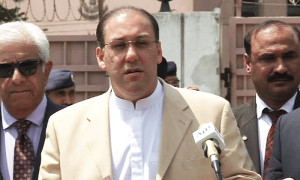Admiral
Chief Minister (5k+ posts)
Source: https://medium.economist.com/why-doing-a-phd-is-often-a-waste-of-time-349206f9addb

In most countries a PhD is a basic requirement for a career in academia. It is an introduction to the world of independent research—a kind of intellectual masterpiece, created by an apprentice in close collaboration with a supervisor. The requirements to complete one vary enormously between countries, universities and even subjects. Some students will first have to spend two years working on a master's degree or diploma. Some will receive a stipend; others will pay their own way. Some PhDs involve only research, some require classes and examinations and some require the student to teach undergraduates. A thesis can be dozens of pages in mathematics, or many hundreds in history. As a result, newly minted PhDs can be as young as their early 20s or world-weary forty-somethings.
One thing many PhD students have in common is dissatisfaction. Some describe their work as “slave labour”. Seven-day weeks, ten-hour days, low pay and uncertain prospects are widespread. You know you are a graduate student, goes one quip, when your office is better decorated than your home and you have a favourite flavour of instant noodle. “It isn't graduate school itself that is discouraging,” says one student, who confesses to rather enjoying the hunt for free pizza. “What's discouraging is realising the end point has been yanked out of reach.”
Whining PhD students are nothing new, but there seem to be genuine problems with the system that produces research doctorates (the practical “professional doctorates” in fields such as law, business and medicine have a more obvious value). There is an oversupply of PhDs. Although a doctorate is designed as training for a job in academia, the number of PhD positions is unrelated to the number of job openings. Meanwhile, business leaders complain about shortages of high-level skills, suggesting PhDs are not teaching the right things. The fiercest critics compare research doctorates to Ponzi or pyramid schemes.
Rich pickings
For most of history even a first degree at a university was the privilege of a rich few, and many academic staff did not hold doctorates. But as higher education expanded after the second world war, so did the expectation that lecturers would hold advanced degrees. American universities geared up first: by 1970 America was producing just under a third of the world's university students and half of its science and technology PhDs (at that time it had only 6% of the global population). Since then America's annual output of PhDs has doubled, to 64,000.
Other countries are catching up. Between 1998 and 2006 the number of doctorates handed out in all OECD countries grew by 40%, compared with 22% for America. PhD production sped up most dramatically in Mexico, Portugal, Italy and Slovakia. Even Japan, where the number of young people is shrinking, churned out about 46% more PhDs. Part of that growth reflects the expansion of university education outside America. Richard Freeman, a labour economist at Harvard University, says that by 2006 America was enrolling just 12% of the world's students.
But universities have discovered that PhD students are cheap, highly motivated and disposable labour. With more PhD students they can do more research, and in some countries more teaching, with less money. A graduate assistant at Yale might earn $20,000 a year for nine months of teaching. The average pay of full professors in America was $109,000 in 2009—higher than the average for judges and magistrates.
Indeed, the production of PhDs has far outstripped demand for university lecturers. In a recent book, Andrew Hacker and Claudia Dreifus, an academic and a journalist, report that America produced more than 100,000 doctoral degrees between 2005 and 2009. In the same period there were just 16,000 new professorships. Using PhD students to do much of the undergraduate teaching cuts the number of full-time jobs. Even in Canada, where the output of PhD graduates has grown relatively modestly, universities conferred 4,800 doctorate degrees in 2007 but hired just 2,616 new full-time professors. Only a few fast-developing countries, such as Brazil and China, now seem short of PhDs.
A short course in supply and demand
In research the story is similar. PhD students and contract staff known as “postdocs”, described by one student as “the ugly underbelly of academia”, do much of the research these days. There is a glut of postdocs too. Dr Freeman concluded from pre-2000 data that if American faculty jobs in the life sciences were increasing at 5% a year, just 20% of students would land one. In Canada 80% of postdocs earn $38,600 or less per year before tax—the average salary of a construction worker. The rise of the postdoc has created another obstacle on the way to an academic post. In some areas five years as a postdoc is now a prerequisite for landing a secure full-time job.
These armies of low-paid PhD researchers and postdocs boost universities', and therefore countries', research capacity. Yet that is not always a good thing. Brilliant, well-trained minds can go to waste when fashions change. The post-Sputnik era drove the rapid growth in PhD physicists that came to an abrupt halt as the Vietnam war drained the science budget. Brian Schwartz, a professor of physics at the City University of New York, says that in the 1970s as many as 5,000 physics PhDs had to find jobs in other areas.
In America the rise of PhD teachers' unions reflects the breakdown of an implicit contract between universities and PhD students: crummy pay now for a good academic job later. Student teachers in public universities such as the University of Wisconsin-Madison formed unions as early as the 1960s, but the pace of unionisation has increased recently. Unions are now spreading to private universities; though Yale and Cornell, where university administrators and some faculty argue that PhD students who teach are not workers but apprentices, have resisted union drives. In 2002 New York University was the first private university to recognise a PhD teachers' union, but stopped negotiating with it three years later.
In some countries, such as Britain and America, poor pay and job prospects are reflected in the number of foreign-born PhD students. Dr Freeman estimates that in 1966 only 23% of science and engineering PhDs in America were awarded to students born outside the country. By 2006 that proportion had increased to 48%. Foreign students tend to tolerate poorer working conditions, and the supply of cheap, brilliant, foreign labour also keeps wages down.
A PhD may offer no financial benefit over a master's degree. It can even reduce earnings
Proponents of the PhD argue that it is worthwhile even if it does not lead to permanent academic employment. Not every student embarks on a PhD wanting a university career and many move successfully into private-sector jobs in, for instance, industrial research. That is true; but drop-out rates suggest that many students become dispirited. In America only 57% of doctoral students will have a PhD ten years after their first date of enrolment. In the humanities, where most students pay for their own PhDs, the figure is 49%. Worse still, whereas in other subject areas students tend to jump ship in the early years, in the humanities they cling like limpets before eventually falling off. And these students started out as the academic cream of the nation. Research at one American university found that those who finish are no cleverer than those who do not. Poor supervision, bad job prospects or lack of money cause them to run out of steam.
Even graduates who find work outside universities may not fare all that well. PhD courses are so specialised that university careers offices struggle to assist graduates looking for jobs, and supervisors tend to have little interest in students who are leaving academia. One OECD study shows that five years after receiving their degrees, more than 60% of PhDs in Slovakia and more than 45% in Belgium, the Czech Republic, Germany and Spain were still on temporary contracts. Many were postdocs. About one-third of Austria's PhD graduates take jobs unrelated to their degrees. In Germany 13% of all PhD graduates end up in lowly occupations. In the Netherlands the proportion is 21%.
A very slim premium
PhD graduates do at least earn more than those with a bachelor's degree. A study in the Journal of Higher Education Policy and Management by Bernard Casey shows that British men with a bachelor's degree earn 14% more than those who could have gone to university but chose not to. The earnings premium for a PhD is 26%. But the premium for a master's degree, which can be accomplished in as little as one year, is almost as high, at 23%. In some subjects the premium for a PhD vanishes entirely. PhDs in maths and computing, social sciences and languages earn no more than those with master's degrees. The premium for a PhD is actually smaller than for a master's degree in engineering and technology, architecture and education. Only in medicine, other sciences, and business and financial studies is it high enough to be worthwhile. Over all subjects, a PhD commands only a 3% premium over a master's degree.
Dr Schwartz, the New York physicist, says the skills learned in the course of a PhD can be readily acquired through much shorter courses. Thirty years ago, he says, Wall Street firms realised that some physicists could work out differential equations and recruited them to become “quants”, analysts and traders. Today several short courses offer the advanced maths useful for finance. “A PhD physicist with one course on differential equations is not competitive,” says Dr Schwartz.
Many students say they are pursuing their subject out of love, and that education is an end in itself. Some give little thought to where the qualification might lead. In one study of British PhD graduates, about a third admitted that they were doing their doctorate partly to go on being a student, or put off job hunting. Nearly half of engineering students admitted to this. Scientists can easily get stipends, and therefore drift into doing a PhD. But there are penalties, as well as benefits, to staying at university. Workers with “surplus schooling”—more education than a job requires—are likely to be less satisfied, less productive and more likely to say they are going to leave their jobs.
The interests of universities and tenured academics are misaligned with those of PhD students
Academics tend to regard asking whether a PhD is worthwhile as analogous to wondering whether there is too much art or culture in the world. They believe that knowledge spills from universities into society, making it more productive and healthier. That may well be true; but doing a PhD may still be a bad choice for an individual.
The interests of academics and universities on the one hand and PhD students on the other are not well aligned. The more bright students stay at universities, the better it is for academics. Postgraduate students bring in grants and beef up their supervisors' publication records. Academics pick bright undergraduate students and groom them as potential graduate students. It isn't in their interests to turn the smart kids away, at least at the beginning. One female student spoke of being told of glowing opportunities at the outset, but after seven years of hard slog she was fobbed off with a joke about finding a rich husband.
Monica Harris, a professor of psychology at the University of Kentucky, is a rare exception. She believes that too many PhDs are being produced, and has stopped admitting them. But such unilateral academic birth control is rare. One Ivy-League president, asked recently about PhD oversupply, said that if the top universities cut back others will step in to offer them instead.

Many of the drawbacks of doing a PhD are well known. Your correspondent was aware of them over a decade ago while she slogged through a largely pointless PhD in theoretical ecology. As Europeans try to harmonise higher education, some institutions are pushing the more structured learning that comes with an American PhD.
The organisations that pay for research have realised that many PhDs find it tough to transfer their skills into the job market. Writing lab reports, giving academic presentations and conducting six-month literature reviews can be surprisingly unhelpful in a world where technical knowledge has to be assimilated quickly and presented simply to a wide audience. Some universities are now offering their PhD students training in soft skills such as communication and teamwork that may be useful in the labour market. In Britain a four-year NewRoutePhD claims to develop just such skills in graduates.
Measurements and incentives might be changed, too. Some university departments and academics regard numbers of PhD graduates as an indicator of success and compete to produce more. For the students, a measure of how quickly those students get a permanent job, and what they earn, would be more useful. Where penalties are levied on academics who allow PhDs to overrun, the number of students who complete rises abruptly, suggesting that students were previously allowed to fester.
Many of those who embark on a PhD are the smartest in their class and will have been the best at everything they have done. They will have amassed awards and prizes. As this year's new crop of graduate students bounce into their research, few will be willing to accept that the system they are entering could be designed for the benefit of others, that even hard work and brilliance may well not be enough to succeed, and that they would be better off doing something else. They might use their research skills to look harder at the lot of the disposable academic. Someone should write a thesis about that.

































